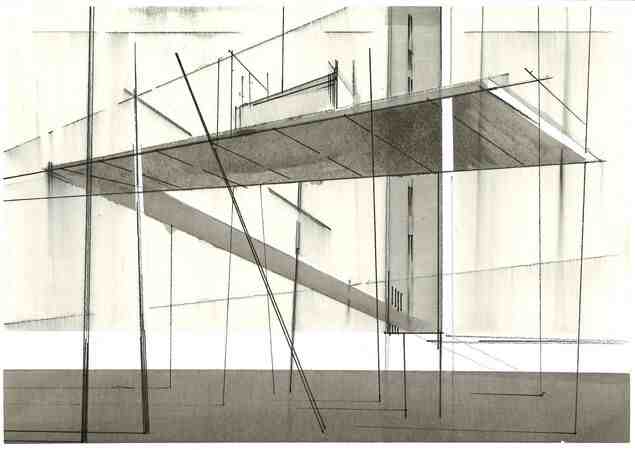The last symphony of Dmitry Shostakovich is mirrored in the music of the American avant-garde composer Morton Feldman, revealing unexpected parallels between two masterpieces of the 1970s written several years apart.
The Precision of Silence
- Date:
- 12 Nov 2024,
20:00–21:30
- Age restrictions
- 12+
Programme
Morton Feldman (1926–1987)
For Frank O’Hara (1973)
Dmitry Shostakovich (1906–1975)
Symphony No. 15 in A major, Op. 141 (1971)
Arranged for chamber ensemble by Viktor Derevyanko
I. Allegretto
II. Adagio — Largo — Adagio — Largo
III. Allegretto
IV. Adagio — Allegretto — Adagio — Allegretto
At first sight, the works to be performed in the fifth concert of the series The Season of Phantasmal Peace come from completely different artistic universes. But closer examination reveals an intimate connection between their sound worlds. Musicologist Leonid Gakkel proposed a formula to serve as a key to the Fifteenth Symphony of Dmitry Shostakovich: “Music dissolves in silence.” The formula could as well be an epigraph to the work for chamber orchestra by American composer Morton Feldman, For Frank O’Hara.
Performed by
Fyodor Beznosikov conductor
Maria Koryakina flute
Ignat Krasikov clarinet
Evsevy Zubkov, Philip Fitin, Denis Zhukov percussion
Yury Favorin piano
Tatiana Porshneva violin
Pyotr Kondrashin cello

Illustration: Danila Travin
Dmitry Shostakovich wrote his Fifteenth (and final) Symphony in just one month, working intensively during July 1971 in the seclusion of the out-of-town resort of the Soviet Composers’ Union in Repino, on the shores of the Gulf of Finland. The work he produced can be seen as the culmination of his creative and life journey. The retrospective nature of the Fifteenth is emphasised by the use of a collage technique, which is highly unusual for Shostakovich. The fragile, rickety musical fabric of the symphony is held together by quotations from the overture to Rossini’s opera William Tell (1829), Wagner’s Der Ring des Nibelungen (1874) and Tristan und Isolde (1859), with musical turns that bring to mind the romances of Glinka and the “gentle sadness” of Pushkin’s poetry. Ghost-like references to the composer’s earlier works hint at the autobiographical, confessional nature of the symphony (Gakkel called the Fifteenth a “Purgatory”). Shostakovich looks into his own past and listens to the history of music, which he undoubtedly already felt himself a part of. In the final movement, the signs and symbols that more than one generation of Shostakovich scholars have struggled in vain to unravel are erased like chalk writing on a blackboard—mystical texts dissolving in the rarefied atmosphere of the music.
In the final bars of the Fifteenth, the faltering beat of the time allotted to man, like the last grains of sand running through an hourglass, gives way to the stopped time of eternity. The experience and contemplation of stopped time was fundamental to works written in the 1970s by Morton Feldman, a composer whose music, as much as the paintings of Jackson Pollock, Mark Rothko and other abstract expressionist artists, defined American culture in the second half of the twentieth century. The transparent, almost ethereal sound matter of late Shostakovich and mature Feldman is stitched together by meditative pauses, narrowing away to its final disappearance into vibrant silence.
Fyodor Beznosikov (b. 1993, Moscow) is a conductor and violinist. He graduated in 2017 from the Moscow Conservatory, where he studied violin under Vladimir Ivanov. He is currently studying opera and symphonic conducting at the Conservatory under Felix Korobov. He has worked since 2023 as conductor at the Moscow Academic Musical Theatre, where he conducted the ballets The Snow Queen and The Final Session (2023). He also teaches violin at the Moscow Conservatory. Fyodor Beznosikov works with Moscow’s New Opera Theatre, where he took part in the production of Richard Wagner’s The Flying Dutchman (directed by Konstantin Bogomolov, 2023). Since 2024 he has conducted performances by the Russian National Orchestra. He was a prize winner at the Art Theatre Prizes in 2024.